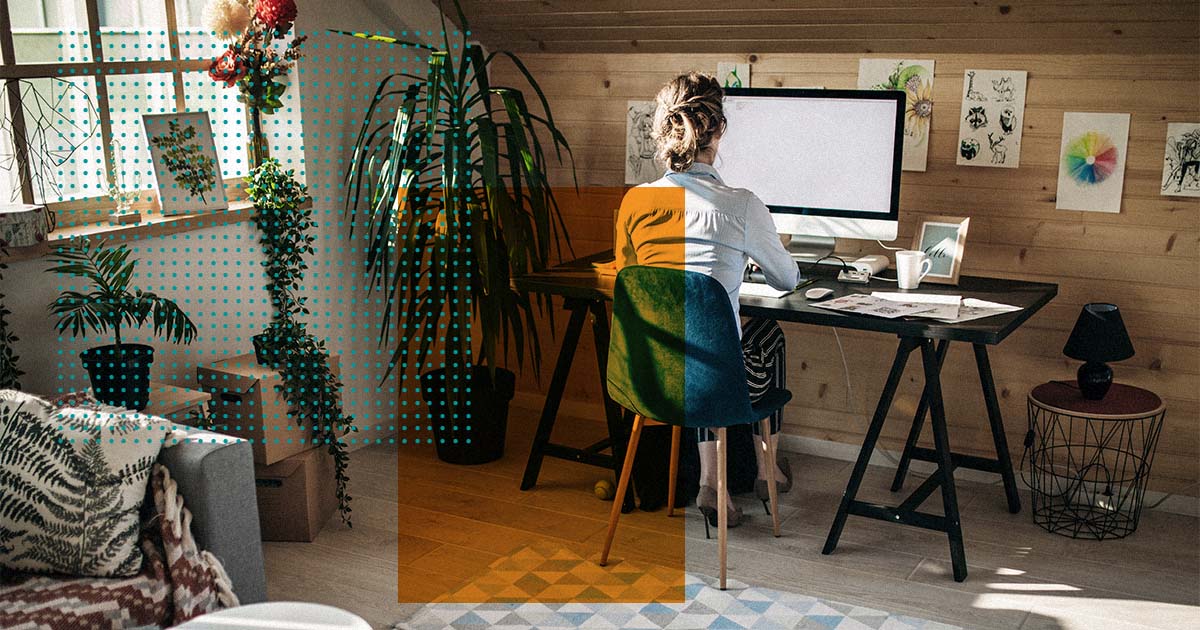Whenever people describe the best things about being self-employed, independence, flexibility and choice all sit high on the list. So perhaps we could all stop telling other freelancers where they should work?
It’s not as if the debate between remote, hybrid and office working is even a new one. The Covid-19 restrictions and lockdowns may have given many people their first taste of freedom, and inspired fear in some employers and commercial landlords. But it was the internet, not coronavirus, that opened up the possibility to escape the daily commute, communal kitchens, and office politics.
Like many people, I started regularly working from home in the early 2000s, particularly when it came to catching up, or covering overtime. My first job with formally agreed hybrid working was back in 2009. And I’ve spent more than 10 years running my own business, and choosing where I work. None of which means I’m an expert on productivity, but does mean I’m irritated at being told I should sit in an office every day to achieve anything worthwhile. Especially when it comes from someone who first tried working remotely during the first coronavirus lockdown.
It’s obvious that a commercial landlord with office or co-working spaces will want to encourage people back into communal working. And some employers will always prefer to see bums on seats rather than actually looking at productivity and outputs. But why would my fellow freelancers and small business owners assume their preference is the definitive way to work?

The best location for freelance working
There have been many studies of remote and office working which compared productivity, motivation, and output. And you can expect a lot more to be produced in the near future, as a quick search for home vs office working already returns 4,210,000,000 results. Without a definitive answer.
But I can save the entire global workforce endless hours of sifting through research and clickbait articles, debates with clients and managers, and arguments on social media. And the actual, definitive, absolute best location for freelance working can be summarised in just four words.
Where you work best.
That could be in a busy central London office. It might be sitting in a friendly coffee shop in your local town. Or on a laptop in bed, still in your pyjamas at lunchtime. The important thing to take from this is that I don’t know. And neither do the article writers or researchers, because the answer is different for every individual.
Unfortunately, many clients and employers might not know or care, either. But the good news is that the Covid crisis seems to have prompted a growing acceptance that flexible working locations and hours can be a benefit.
Let’s not undermine that by insisting our own choices are the right ones for every freelancer.

Share inspiration, not judgement
If you’re excited about getting back to the office and seeing clients and colleagues in person, that’s fantastic and I’m happy to see you enthusiastically sharing it on social media.
When you’ve secured a new hybrid contract and you’re able to find a better balance between work commitments and family life, then that’s a lovely thing to see.
And I’m always fascinated by everyone sharing their home office set-up, and what it reveals about their personality, hobbies, or taste in motivational posters.
Just don’t expect, or insist, that everyone follows your example. For every example of remote working benefits, there’s research to promote a return to the office, or vice versa. And for each person recommending a clean desk accompanied by the sound of ambient rainfall, there’s someone who thrives in mess, with a death metal playlist.
The more we all share the amazingly different things about freelancing that make us happier, motivated, or more productive, the more we emphasize that the one thing that consistently works for every self-employed person is having choices.
Read more of Dan’s previous opinion columns on freelancing here, including bad briefs, living with another freelancer, and why everyone should be self-employed at least once in their careers.






